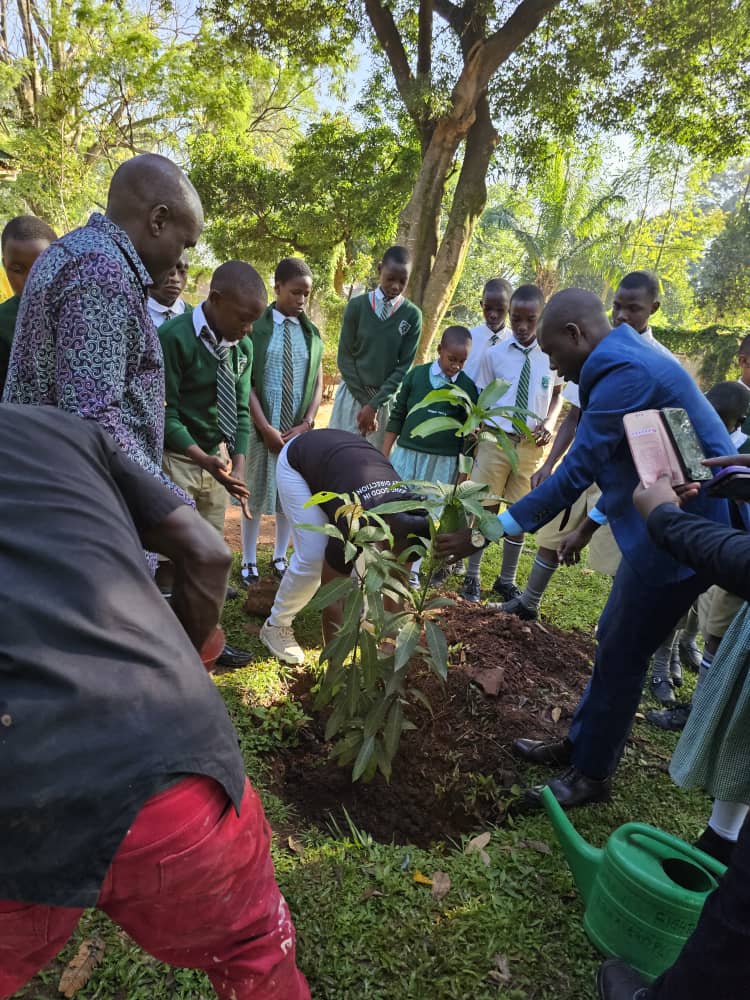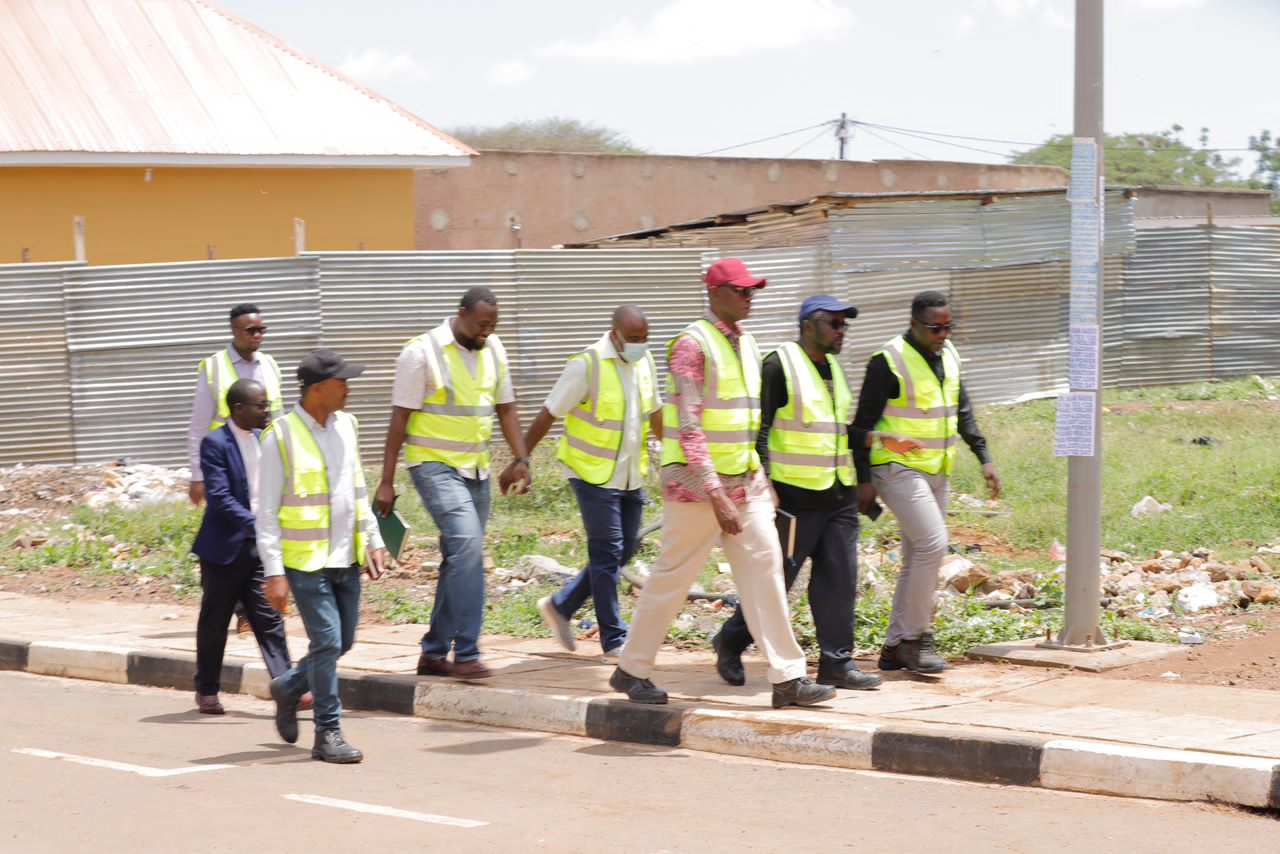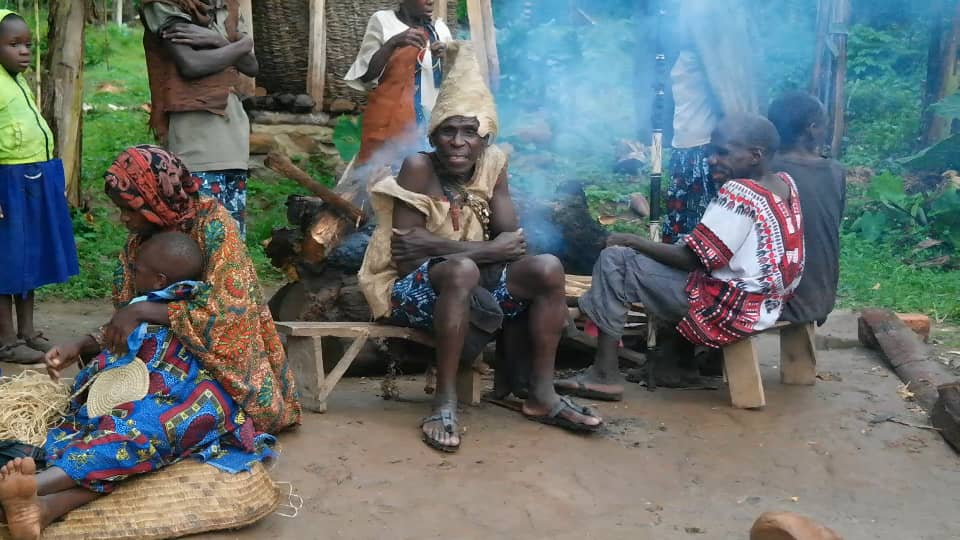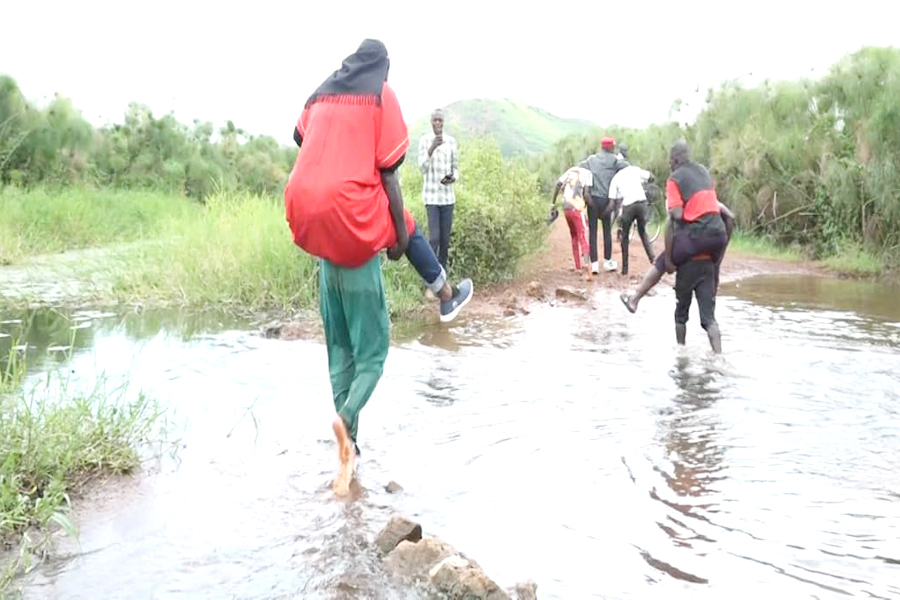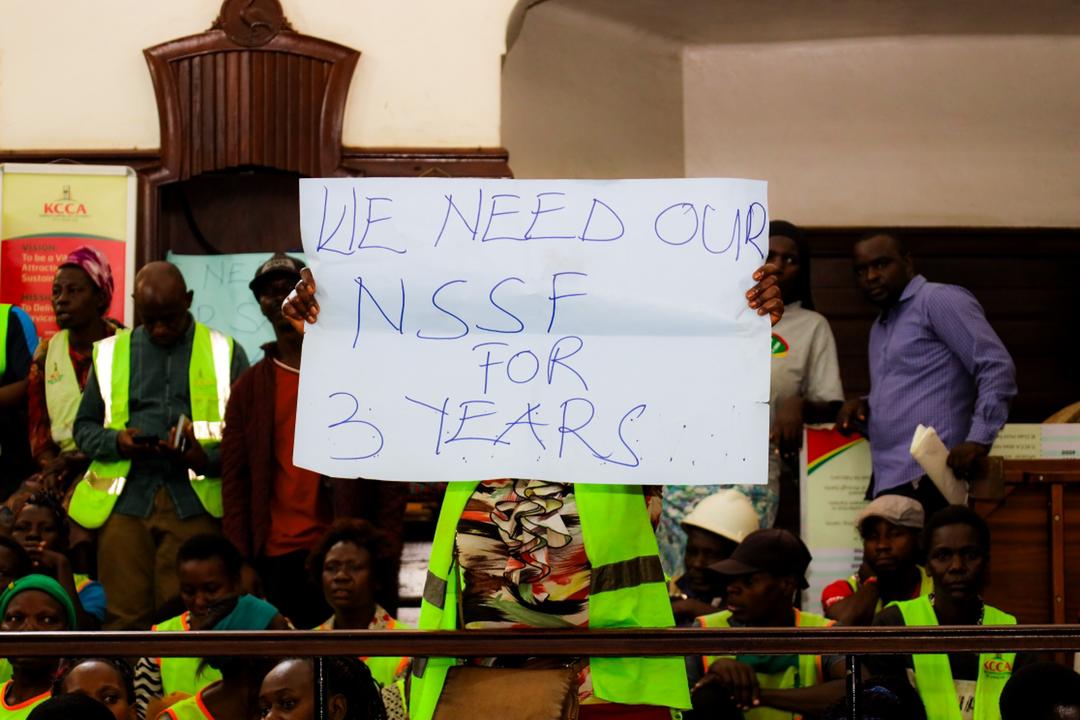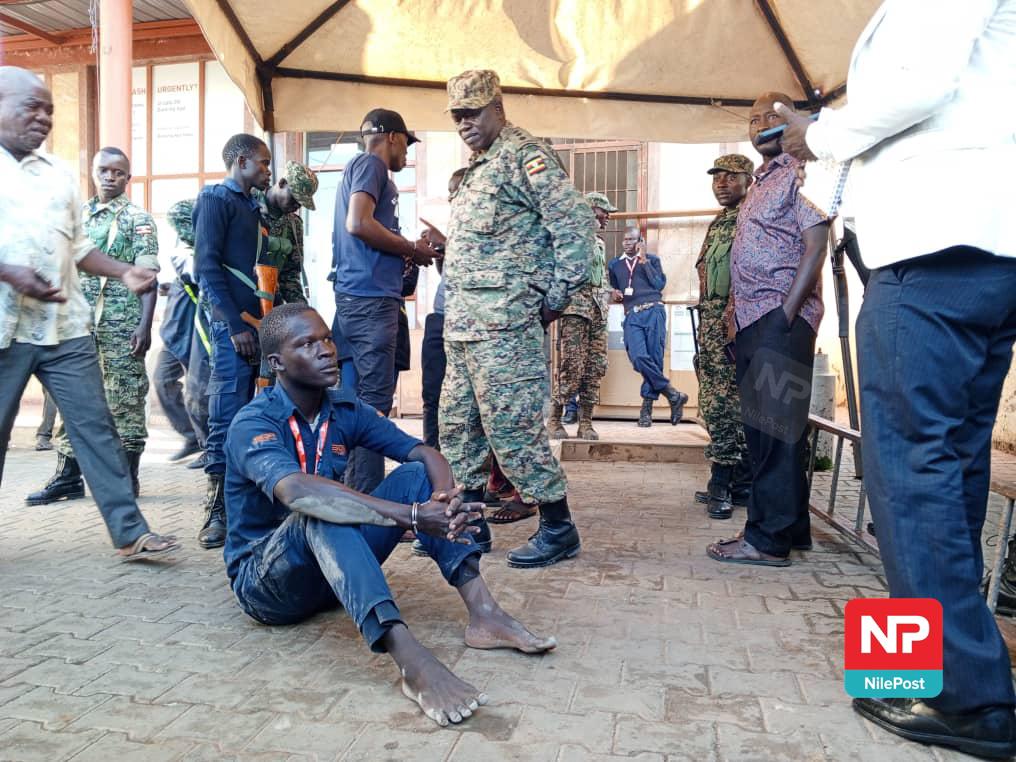Kasese massacre: widows, orphans call for help
Over a year after Kasese district was plunged into a conflict that cost hundreds of lives; widows and orphans have called for help as they struggle to make ends meet.
The military raid on Rwenzururu king Charles Wesley Mumbere's palace on November 26th and 27th 2016 left more than 100 people dead and families robbed of their breadwinners.
Just over a year after the attack, women struggle to cope as single mothers and to provide for the ever increasing needs of their children.
Memories of the November 2016 skirmishes in Kasese remain fresh in the minds of Yudesi Soba a year after the incident happened. Soba was married to Nelson Soba, one of the people that lost their lives at the Rwenzururu King's Buhikira palace in Kasese town during a confrontation between security agencies and kingdom loyalists.
The grief increases each day that passes as she shoulders the burden of taking care of their seven children, one of whom, Provia Mbambu, is a year old. Mbambu was barely a month old when her father died.
"Mbambu is unfortunate, she didn't and will not have the opportunity to talk to her loving father," Mrs. Soba said. "As for this one", she points to her four-year-old daughter, "she's still innocent, she keeps probing me why her dad is taking long to come from town." To Soba, this is half a life she lived.
However, her bigger worry is how to bring up all the children as responsible citizens with a decent life and an education.
She recalls: "My husband always encouraged his children to study; he brought them perks whenever he came from town and told them they would always have enough of those perks if they studied."
Soba had enrolled his children at Model-Care Primary school which is about three kilometres away from their home. Each of the children parted with at least two thousand shillings for transport to and fro the school daily, plus of course, some money for their lunch.
With the demise of their father, this burden shifted to the 33-year-old peasant widow, their mother. She says the load is too heavy for her.
"At least their dad would struggle to make us survive, but for me, the only thing I can do is to cultivate on this small piece of land and dig for other people to get some money," she said.
Nelson Soba was a tailor and photographer. He worked in the palace as a tailor to the kingdom officials; and according to his wife, the future was seemingly bright.
For the year that he had worked in the palace, he had initiated the purchase of a piece of land on which the family now stays.
Out of the five million shillings, the deceased had only paid 1.7 million to the seller of the land.
"Despite the huge balance, my husband would have paid it, he had his own gadgets: camera and sewing machine which supported our wellbeing," she said.
The camera and the sewing machine were never seen after the attacks on the king's palace.
With an outstanding 3.3 million debt on Mrs. Soba's neck, her life became a nightmare until her husband's family came to her rescue.
The family mobilised two million shillings as an additional payment bringing the total pay to 3.7 million shillings.
As Mrs. Soba struggles to clear the remaining debt of Shs 1.3 million, the children have been shifted from Model-Care Nursery and Primary School to Kaghando Primary School which is a Universal Primary Education (UPE) school with a modest performance.
For the last three years, Kaghando has been getting only one candidate in first grade, about 50% of the remaining candidates pass in second and third divisions.
This means that half of the class can't go for secondary education due to poor performance.
In fact, at around 1PM when this writer arrived at Mrs Soba's home in Mulinda II village, Bwesumbu parish of Bwesumbu sub-county, his eldest son, Elvin Kiiza, a 14-year old who is in primary six, had not gone to school.
He said he remained behind to pick some coffee for sale in order to get money for uniform and books.
The mother interjected and explained that, because of the challenges the family goes through; Kiiza seems to have lost interest in education.
"I don't know what is happening with my boy, he is no longer enthusiastic about education."
Mrs. Soba said it is difficult for her to chase after money for their survival and also fight with the boy to study.
Kiiza wants to be a fashion designer in the future, an inspiration from his father who used to design clothes for his children, the villagers, and kingdom officials.
However, a combination of factors including lack of guidance, poor school and poverty could shatter his dreams.
A similar story is told by a one Cornelius Byalemene, the head of the Basolene family in Kyahundu Village, Bikone parish in Maliba Sub County.
Byalemene's family lost two people in the conflict. The deceased left three children.
Byalemene now takes care of them.
He, however, said due to poverty, he may not afford to offer them a decent life since he also has a big family to take care of.
The story is the same in many other families whose breadwinners perished as a result of last year's scuffles.
According to statistics from Bwesumbu sub county headquarters, the sub county has 38 widows and 285 orphans so far identified.
Recent media reports indicate that over 150 people perished in last year's conflict alone while another 193 people, 23 of them women, are in Kirinya government prison battling a plethora of charges including treason, murder, and terrorism arising from the same conflict.
Bwesumbu sub county LC 3 chairperson, Samson Bagenda, says the deaths and arrests have bred a huge number of vulnerable people who are a recipe for disaster in the community.
He also said the deaths and detention are likely to usher in new challenges related to health.
"When you have a huge number of widows and many others whose husbands are under detention if they are not empowered to protect themselves, even the HIV prevalence rate increases," he said.
Bagenda revealed that his administration and a few civil society organisations have been engaging the widows and the women whose husbands are in prison on how to manage their families. He, however, says that the challenges are way too many and need a lot of finances to be addressed.
"Many of our people in these families are traumatised; you find a family which lost about four people, what happens to them? How do the orphans grow up," he wonders.
Bagenda says in many of his conversations with these people, he reads that they feel neglected and have a lot of anger. To him, such people need rehabilitation which the local government cannot afford.
He reveals that the people's relationship with the security has been frosty where the locals do not trust the police or the military and otherwise.
This, he believes, is a challenge which arose after some individuals exploited the tensions to settle personal scores.
"A one Matayo Bighanzire was killed by the military on suspicion of being a "Kilhumira Muthima", a youth group loyal to Rwenzururu King Charles Wesley Mumbere, after the security got wrong intelligence," he remarked.
Security claims Kilhumira Muthima was responsible for attacks on military installations in the Rwenzori Sub-region.
Mumbere remains under house arrest in Kampala as he battles charges of treason, murder, and terrorism among others.


